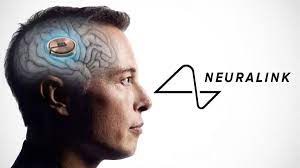
In a groundbreaking development, Neuralink, the neurotechnology company co-founded by Elon Musk, has successfully implanted its first brain chip into a human being. This marks a significant step forward in the field of brain-computer interfaces (BCIs) and opens up a myriad of possibilities for the future of medical treatment and human enhancement.Background of NeuralinkFounded in 2016, Neuralink has been at the forefront of developing advanced neural interface technology. The company aims to create devices that can be implanted in the human brain, with the potential to help treat neurological disorders and eventually enable symbiosis between humans and artificial intelligence.The Brain Chip ImplantThe recently implanted brain chip, known as the “Link,” is a small, coin-sized device that is placed under the skull and interfaces directly with the brain. The Link is designed to monitor brain activity and potentially stimulate brain regions for therapeutic purposes. The device is inserted through a minimally invasive surgical procedure using a robot specifically designed by Neuralink.Potential ApplicationsThe primary goal of Neuralink’s brain chip is to address various neurological conditions, such as epilepsy, Parkinson’s disease, and spinal cord injuries. By recording and stimulating brain activity, the Link could offer new treatment options for patients suffering from these conditions.Moreover, the technology holds promise for broader applications, such as restoring sensory and motor function and even enhancing cognitive abilities. The long-term vision is to facilitate direct communication between the human brain and computers, offering unprecedented interaction capabilities.Safety and Ethical ConsiderationsThe implantation of the first human brain chip by Neuralink is not without its challenges and concerns. There are significant safety and ethical considerations, including the risks associated with brain surgery, the potential for device malfunction, and the broader implications of enhancing human cognition.Neuralink has emphasized its commitment to conducting extensive safety testing and working closely with regulatory bodies to ensure compliance with medical standards. Ethical discussions and guidelines will be crucial as this technology evolves and becomes more integrated into society.Future OutlookThe successful implantation of the Link in a human subject marks a pivotal moment in the advancement of brain-computer interfaces. While the current focus is on medical applications, the potential for future developments in human enhancement and AI integration is vast.
As Neuralink continues its research and development, the world eagerly watches to see how this revolutionary technology will evolve and reshape our understanding of the human brain and its capabilities.





